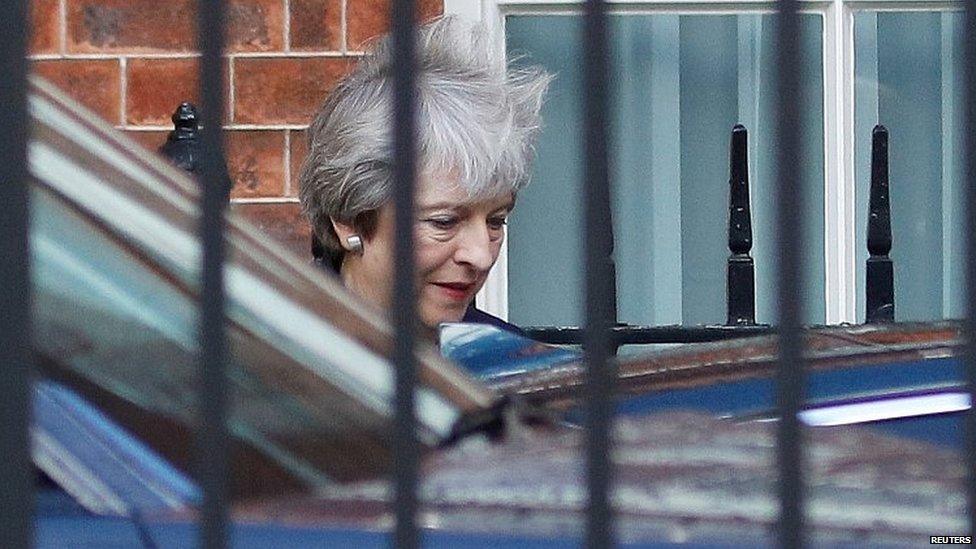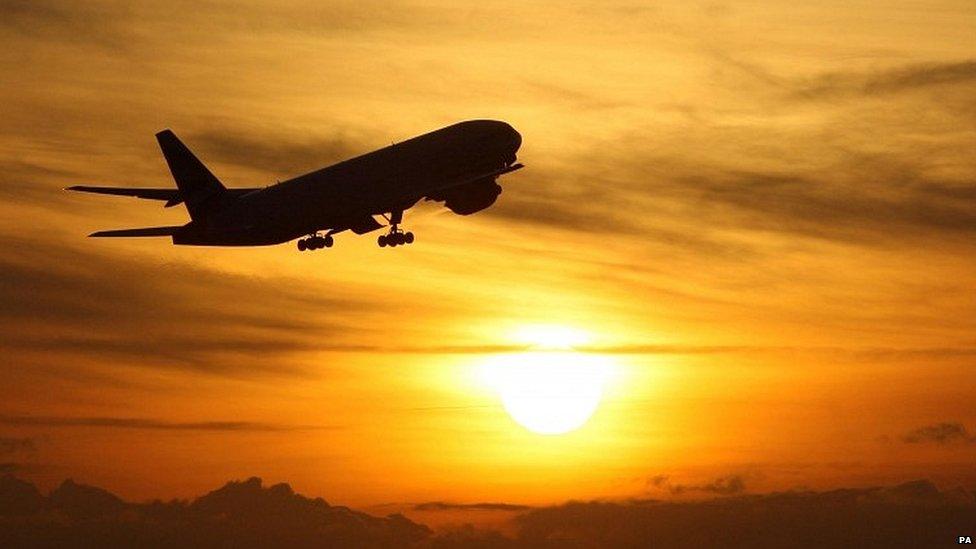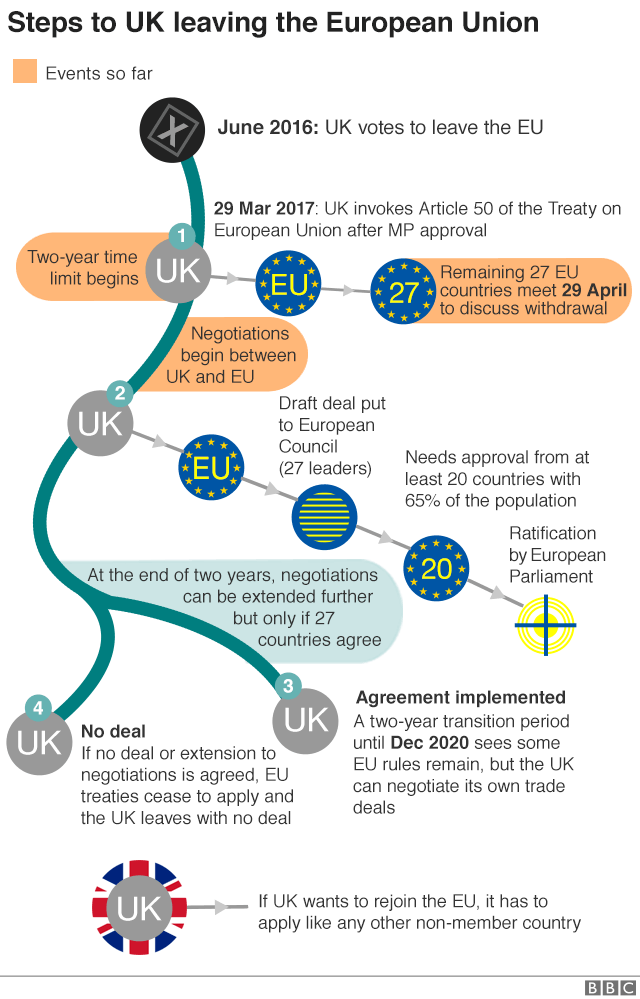Brexit: No 10 says cabinet 'fully behind' PM's plan
- Published
- comments

The cabinet remains fully behind Theresa May's Brexit policy in the face of growing calls within her party to change direction, No 10 has insisted.
The prime minister is sticking by her Chequers plan for future co-operation despite European leaders attacking it.
She met senior ministers as pressure grows on her to ditch it in favour of a Canada-style trade accord.
Meanwhile, ministers have warned of the risk of disruption to flights in the event of the UK leaving without a deal.
The two sides are seeking to negotiate the terms of exit as well as an outline agreement on future co-operation, over the next month or so.
But the talks hit the rocks on Thursday when EU leaders dismissed the basis of the PM's plan - a free trade zone and common rule book for goods with greater divergence for services - as "unworkable".
At a cabinet meeting earlier, Mrs May defended her strategy following calls from leading Brexiteers in her party to keep the option of a Canada-style arrangement on the table as talks enter a crucial phase.
Afterwards, Downing Street said she had told ministers hers was the "only plan on the table" that secured the "frictionless trade" needed to avoid a hard border between Ireland and Northern Ireland.
Theresa May: "There's a plan on the table from us. If they have issues with it, let's hear what those issues are."
Mrs May also defended her Brexit trade plans to the European Parliament's Brexit co-ordinator Guy Verhofstadt, who she hosted in Downing Street.
The prime minister also told him the UK would guarantee the rights of the three million EU citizens living in the UK even if it leaves without a deal.
Mr Verhofstadt described their meeting as an "open an honest exchange".
The government has now published 77 technical notices designed to prepare business and inform the public about what could happen in the "unlikely" event of the UK leaving without a deal.
The latest batch included warnings on aviation, pet transport and coach travel.

Airlines will have to apply for country-by-country licences in the event of a no-deal Brexit
Canada's deal with the EU, signed in 2016, removes the vast majority of customs duties on EU exports to Canada and Canadian exports to the EU.
Former foreign secretary Boris Johnson said proposals put forward by the Institute for Economic Affairs on Monday, external showed there was an alternative to ending up as a vassal state with "colony status" through the Chequers route.
The IEA, a free market think-tank, said Mrs May should change tack and pursue an advanced free trade agreement with the EU, with full reciprocal market access, no tariffs in goods including agriculture and maximum recognition of regulatory standards.
It said new customs processes had to be put in place that could handle a potential five-fold increase in declarations after Brexit, using enhanced technology and information sharing to separate the movement of goods from the processing of forms for as many traders as possible.

What is the so-called Canada option?
It is based on Canada's free trade deal with the EU, called the Comprehensive Economic and Trade Agreement or Ceta, which was agreed in 2016 after seven years of negotiations.
The deal eliminates most trade tariffs on goods and gives Canadian firms preferential access to EU markets without them having to automatically sign up to EU regulations
It does not include some food items, including eggs and chicken, while services are only partially covered. Brexiteers want a "Plus, Plus" version of the deal addressing these areas.
It is strictly a trade deal - so the UK would still have to reach new arrangements with the EU in other areas, such as security.

Concerns over the Irish border could be "solved", the IEA argued, by bespoke technical solutions, including trusted trader schemes and streamlined procedures for small businesses.
Mr Johnson said the IEA blueprint would allow the UK to "do a big free trade agreement with the EU but also to do free trade deals around the world" while Jacob Rees-Mogg said it could win the backing of the EU, Parliament and also "public opinion".
But former education secretary Nicky Morgan, who favours closer links with the EU after Brexit, said a Canada-style deal would take years to negotiate and might not give the kind of access its supporters hoped for.

Mrs Morgan told Conservative Home, external that the fallback option was for the UK to rejoin the European Free Trade Association, the so-called Norway option which would give the UK preferential market access although it would be required to accept EU rules, including on freedom of movement.
Brexit Secretary Dominic Raab said the cabinet had had a "good, healthy discussion" and ministers would continue to press the EU on some of the criticisms it had made.
"Of course we respect different views across the board but we're not going to suddenly throw up our hands in despair because we've had a bump in the road in these negotiations," he said.
